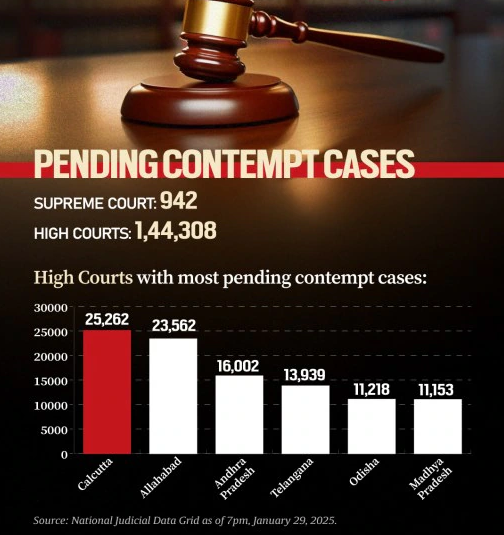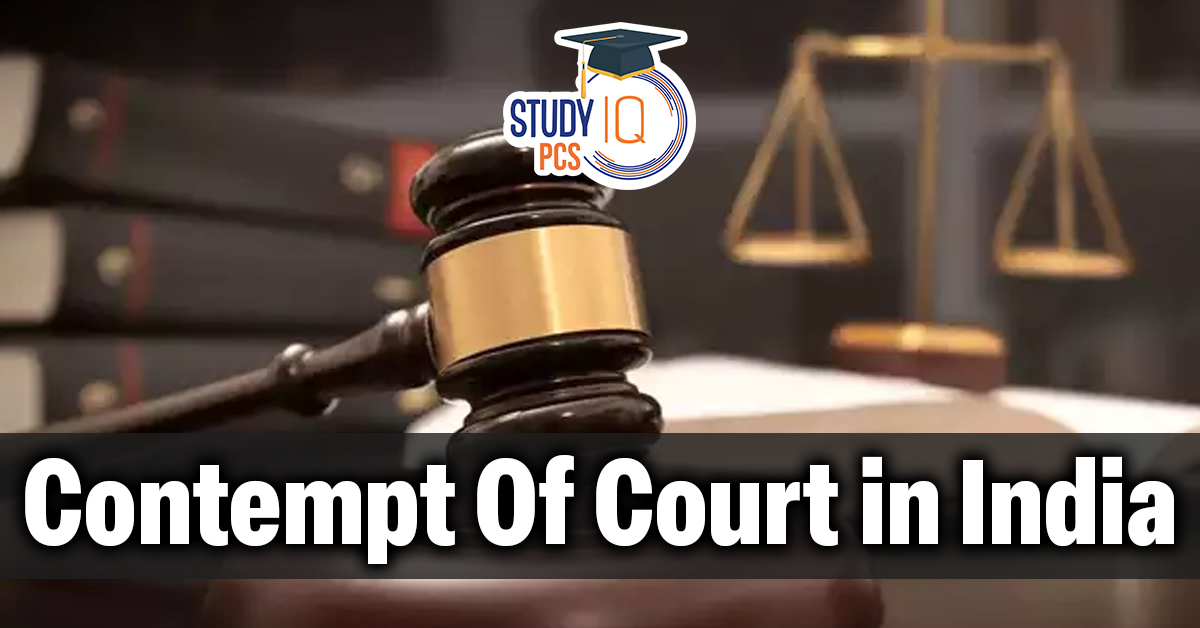Table of Contents
Context: The Union Law and Justice Ministry has asked all Ministries to improve the compliance of judicial orders to reduce the number of such cases pending against the government.
About Contempt Of Court
- Contempt of court is a legal provision to safeguard judicial institutions from undue attacks and preserve their authority.
- The Constitution of India does not define Civil Contempt and/or Criminal Contempt.

Constitutional and Statutory Provisions
- The Constitution restricts freedom of speech under Article 19(2) to include contempt of court.
- Articles 129 and 215 grant the Supreme Court and the High Courts the power to punish contempt of themselves.
- The Contempt of Courts Act, 1971, provides a statutory basis for contempt proceedings. It was passed on recommendations made by the H N Sanyal Committee.
Types of Contempt of Court
- Civil Contempt: Defined as the intentional disregard of court orders or breaching a commitment made to the court.
- Criminal Contempt: Constitutes actions or publications that denigrate the authority of the courts, interfere with judicial proceedings, or obstruct justice.
Exceptions
- Fair and objective reporting on judicial proceedings does not constitute contempt.
- Constructive criticism of judicial orders, post-adjudication, is allowed.
Punishment for Contempt
- Penalties Under the Act of 1971: Contempt can lead to a maximum of six months imprisonment, a fine of Rs 2,000, or both.
2006 Amendment
- “Truth and good faith” was introduced as a valid defence in contempt cases.
- Punishment is applicable only if the contemptuous act significantly disrupts the course of justice.
| UPSC PYQ |
Q. Consider the following statements: (2022)
Which of the statements given above is/are correct? (a) 1 and 2 only (b) 1, 2 and 4 (c) 3 and 4 only (d) 3 only Ans: B |


 Linking Aadhaar with Voter ID Endangers ...
Linking Aadhaar with Voter ID Endangers ...
 Article 142 of Indian Constitution, Sign...
Article 142 of Indian Constitution, Sign...
 Pakistan-Occupied Kashmir (PoK): History...
Pakistan-Occupied Kashmir (PoK): History...





















